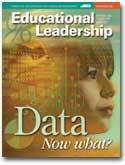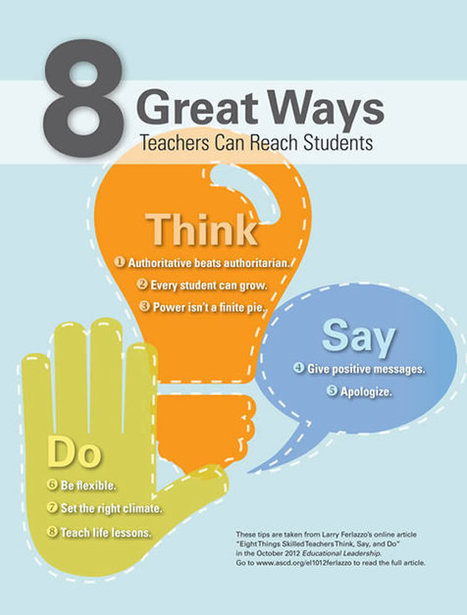Teachers lead learning in their classrooms every day, but teacher leadership often extends beyond the classroom. Teachers lead their colleagues in professional learning and growth. They lead their communities in bringing change to schools. They might focus on leading within their schools and localities, or they might use social media to share their ideas with fellow educators around the world. But such leadership can be a challenge.
Administrators and policymakers need to listen to teacher voices and give teachers room to lead. This issue of Educational Leadership looks at how teachers are leading today and considers how schools can best leverage the leadership skills of teachers.
Learn more:
- http://www.scoop.it/t/21st-century-learning-and-teaching/?tag=LeaderShip



 Your new post is loading...
Your new post is loading...














Teachers leading beyond the classroom talks a lot to the 'space & trust' administrators accord teachers - as well 'triggering leadership-DNA' amongst teacher ranks. The latter needs training as well as coaching & mentoring
Liderazgo...Educational Leadership | Leveraging Teacher Leadership | EL Study Guide | @scoopit via @knolinfos http://sco.lt/...